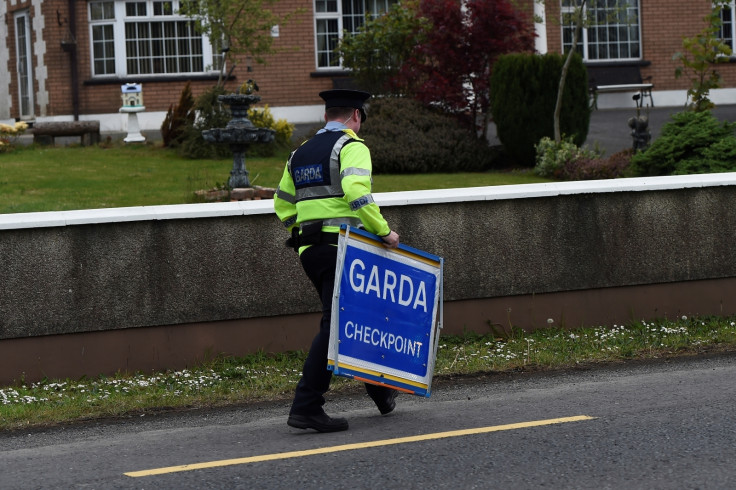You can understand why the Irish are getting tetchy about Brexit
Ireland's position is that the UK should stay in the customs union, but this is plainly not going to happen.

You can understand why the Irish are upset about Brexit. It is, from their point of view, a wholly unlooked-for nuisance. If things go badly, trade with their chief market will be prejudiced and a border might return. If things go well, there could be pressure for Ireland to follow the UK. Neither option is palatable. Behind these concrete fears lies a more inchoate sense that Brexit heralds the return of a more assertive UK – something that disturbs the Irish psyche.
So we can surely forgive a certain degree of tetchiness in the tone of some Irish politicians. Following the Belfast Agreement and the Queen's visit to Dublin and Cork, UK-Ireland relations were as warm as they had ever been. As they see it, everything is now imperilled by a spasm of British nationalism.
Still, it's worth breaking down what the actual problem is, as opposed to the sense of grievance that surrounds it. The UK and Ireland have formed a common travel area for nearly a century. It existed before either state joined the EU, and it includes non-EU territories today – the Channel Islands and the Isle of Man. All sides agree that that that arrangement will continue. Commentators seem finally to have grasped that UK immigration policy doesn't depend on turning people away at the border, and that the idea of EU nationals flying to Dublin and sneaking into Newry is absurd: they could simply fly to Luton.
The issue at stake is not movement of people, but movement of goods. If Britain pursues a more open trade policy than the EU, with lower (or, ideally, no) tariffs, there will be a different customs regime. Although Dublin's protests are phrased in terms of avoiding a hard border, there is just as much concern about Ireland's competitiveness, especially in agriculture. Two thirds of Irish beef exports, for example, go to the UK. Once Britain starts buying cheap and delicious beef from Argentina, Australia and the United States, this market will suffer.
Ireland's position is that the UK should stay in the customs union, but this is plainly not going to happen. Nor, frankly, is it a reasonable request. Imagine it the other way around. Suppose that Britain instructed Ireland to raise its rate of corporation tax so as to stop undercutting us. Irish politicians would quite rightly tell us to mind our own business. Indeed, this is precisely the line they take when Brussels tells them to do so.
It is one thing to want close relations, another to seek to dictate the internal affairs of a neighbouring country. Britain has gone as far as any country can go to offer a workable deal on the border. The physical infrastructure of a hard border is nowadays largely redundant. Customs declarations happen online and in advance, and blockchain will soon make all customs borders between advanced economies unnecessary. The border between EU Sweden and non-EU Norway, for example, is largely unpoliced, though the authorities of each country are allowed to carry out spot checks within 15 kilometres on either side. Non-EU Switzerland likewise has largely open borders. Frankly, in these two cases, even the minimal physical infrastructure that we see is largely a legacy of a unionised workforce. Starting with today's technology, the crossings would be completely open.
In any event – this point cannot be stressed too strongly – the UK has announced that it will not put up a border. It has offered two ways to keep the frontier open. Either by using number-plate recognition, licensing local businesses and hauliers to cross without checks and the like; or, if that isn't enough, to apply the EU's customs regime itself to any goods destined for onward transport. Both these schemes would obviate the need for physical infrastructure at the Irish border. But, if neither is good enough for Brussels, the UK will still not raise a border.
In other words, any border will be imposed by the EU on the Irish side. The UK side will remain open. Irish and EU politicians insist that this would still somehow be our fault, since we are creating the situation by leaving. That is ridiculous. We might as well argue that it is Ireland's fault for not leaving with us or, indeed, Ireland's fault for creating the border in the first place. The reality is that Britain will not erect a border. If there ends up being a border, it will be imposed by Dublin and Brussels.
To argue that it is Britain's responsibility to avoid the situation by contracting out its trade policy to Brussels is exactly analogous to arguing that Ireland should avoid it by leaving the EU customs union to rejoin the British one. Both are nonsensical propositions.
The way to avoid a border is to ensure that the overall trade deal between the UK and the EU maintains the current arrangements on veterinary checks and the like. It is possible to keep these things in place while allowing for a divergence in duties. Those are the talks that we ought to be holding. The delay is not on Britain's side.
© Copyright IBTimes 2025. All rights reserved.






















